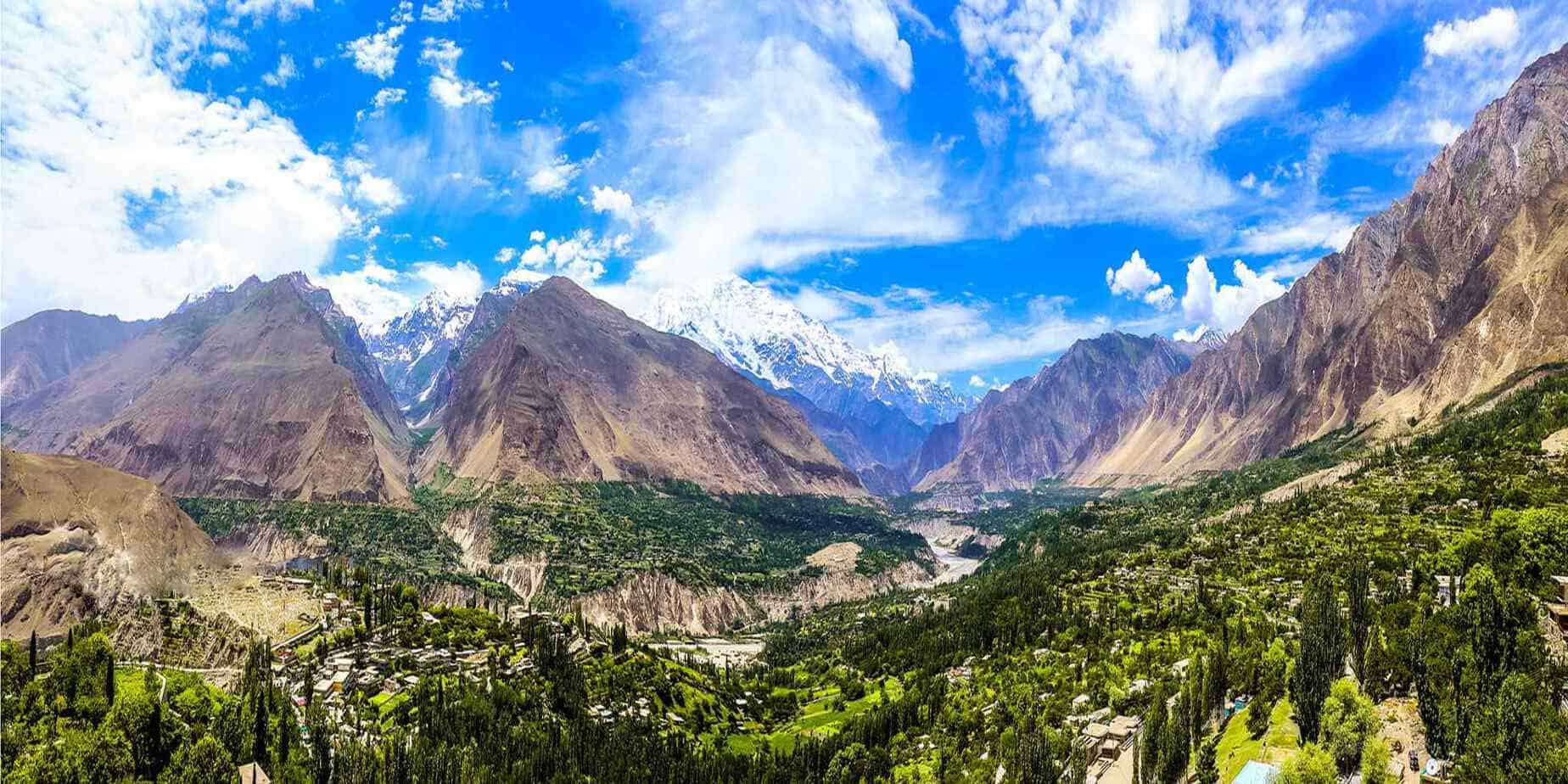Nestled in the heart of the Karakoram mountain range lies the serene and picturesque valley of Hunza. Known for its stunning natural beauty, rich cultural heritage, and exceptional health of its people, Hunza is a destination that offers a truly unique travel experience.
The valley is surrounded by some of the highest peaks in the world, including Rakaposhi, Ultar Sar, and Diran, all of which offer breathtaking views of the surrounding landscape. Visitors can hike to the basecamps of these peaks, or simply take in the stunning vistas from various viewpoints throughout the valley.
Hunza is also known for its rich cultural heritage. The region is home to several ancient forts and castles, including the Altit Fort and the Baltit Fort, which offer a glimpse into the history and culture of the region. Visitors can also explore the local markets, where they can find a variety of unique handicrafts, including rugs, jewelry, and clothing.
In addition to its natural beauty and cultural richness, Hunza is also renowned for the longevity and good health of its people. With a life expectancy of over 100 years, the people of Hunza have been referred to as the “healthiest people on earth.” Visitors can learn from the locals and be inspired to adopt lifestyle habits that promote longevity and good health.
Hunza is a destination that truly has something for everyone. Whether you’re seeking adventure, culture, natural beauty, or health and wellness inspiration, Hunza is a must-visit destination that will leave you with unforgettable memories and a deep appreciation for this gem of a valley.
Education for Empowerment: The Remarkable Story of Hunza Valley

While the valley of Hunza is known for its natural beauty, cultural richness, and delicious cuisine, it is also a region that places a strong emphasis on education. The people of Hunza believe that education is the key to unlocking the full potential of their region and empowering future generations.
Despite the challenging terrain and limited resources, Hunza has made impressive strides in education. The region boasts a literacy rate of over 90%, which is one of the highest in Pakistan. This is largely due to the efforts of local NGOs and community organizations that have established schools and programs to promote education in the region.
Hunza’s educational system is unique in that it emphasizes not only academic achievement but also practical skills and vocational training. This approach ensures that students are not only well-educated but also equipped with the skills and knowledge they need to succeed in their careers and make a positive impact on their communities.
One of the most notable educational institutions in Hunza is the Aga Khan Education Service (AKES), which has established several schools and colleges throughout the region. These institutions provide high-quality education to students from all backgrounds, including those from disadvantaged communities.
The people of Hunza believe that education is not only important for personal growth and development but also for the progress and prosperity of their region. Through education, they hope to empower future generations to take charge of their lives, pursue their dreams, and make a positive impact on their communities and the world.
Hunza’s emphasis on education is a testament to its commitment to progress and prosperity. Through its educational institutions and programs, Hunza is empowering the future of its region and setting an example for others to follow.
Discovering the Delicious and Nutritious Cuisine of Hunza
The valley of Hunza is not only famous for its natural beauty but also for its rich and unique cuisine. The local food of Hunza is known for its delicious flavors, nutritional value, and the use of locally sourced ingredients. From meat dishes to vegetarian options, Hunza’s cuisine has something to offer for everyone.
One of the most famous meat dishes in Hunza is Chapshoro, a meat pie that is filled with a variety of vegetables and spices. Another popular dish is Burus Shapik, which is made by stuffing bread with a mixture of local cheese, mint, coriander, chillies, and apricot kernel oil. For vegetarians, Giyaling is a popular dish made from a simple rolled-out dough that is fried and served with butter and local honey.
Hunza is also known for its unique bread called Fiti, which is made from whole wheat flour and baked in a traditional clay oven. This bread is served with butter, honey, or jam and is a staple food in Hunza.
Besides these dishes, the local cuisine of Hunza also features soups made with meat, vegetables, and hand-made noodles. These soups are packed with nutrients and are a great way to warm up during the chilly winter months.
Fruits such as apricots, apples, and cherries are also a significant part of the Hunza diet. The locals often dry these fruits and store them for the winter months when fresh produce is scarce.
In conclusion, the cuisine of Hunza is a unique blend of flavors, textures, and nutritional values. It offers a wide range of options for meat lovers, vegetarians, and vegans, making it a food lover’s paradise. If you are planning a visit to Hunza, be sure to try out the local dishes and experience the culinary delights of this beautiful region.
.




